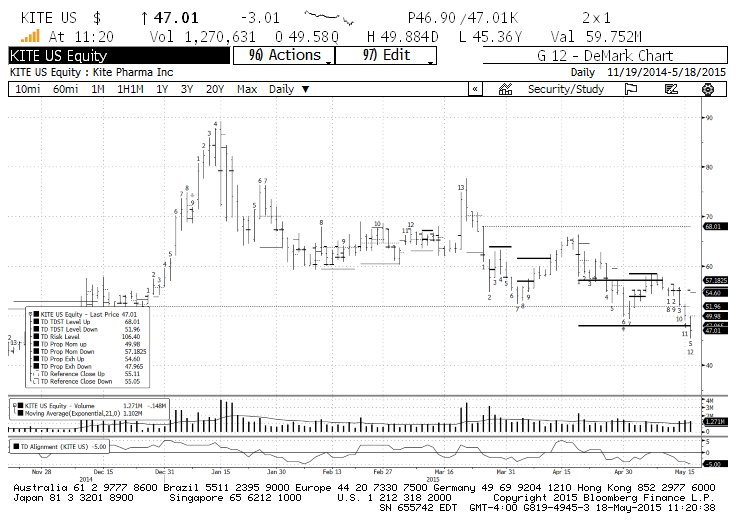

Since then, Kite has been actively pushing ahead with the CAR therapy development. In March 2014, the FDA granted orphan drug designation for Kite's anti-CD19 CAR T-cell therapy for the treatment of DLBCL. For these patients with relapsed/refractory DLBCL, there is an unmet need for more effective therapies. DLBCL is an aggressive type of non-Hodgkin's lymphoma, and a significant proportion of patients have a form of the disease which is resistant to the standard chemotherapy or autologous transplant treatments.
#Kite pharma news trial
We are excited to advance this promising therapy and anticipate commencing patient enrollment in our DLBCL clinical trial in the first half of 2015."Īccordingly to Kite's press release, there are about 22,000 new cases of DLBCL diagnosed in the U.S. "Based on this substantial progress, Kite plans to file an IND in the fourth quarter of this year to initiate a Phase 1-2 single-arm multicenter clinical trial of KTE-C19 in patients with DLBCL who have failed two or more lines of therapy. "We are greatly encouraged by the strong results we have seen from our joint lead clinical program with the NCI," commented Arie Belldegrun,, Kite's President and CEO. The NCI is conducting the Phase 1-2 clinical trials for Kite under a Cooperative Research and Development Agreement (CRADA) between Kite and the NCI. The trial was performed with Kite's most advanced product candidate, KTE-C19, which is prepared by genetically modifying a patient's T-cells to express a CAR designed to target the protein CD19, which is expressed on the cell surface of B cell lymphomas and leukemias.

The results of the clinical trial have been published in the AugIssue of the Journal of Clinical Oncology. Of seven evaluable patients with chemotherapy-refractory diffuse large B cell lymphoma (DLBCL), four achieved complete remission, with three patients’ treatment continuing for longer durations. The results showed that, after administration of anti-CD19 CAR T-cells, or CARTs, to 12 patients with advanced B-cell malignancies, eight patients had complete remission and four patients had partial remission.

The Phase 1-2 clinical trials were conducted by the Surgery Branch of the National Cancer Institute (NCI) and were funded by Kite. Kite Pharma, a California based clinical-stage biopharmaceutical company, announced last Monday the positive results from a Phase 1-2 clinical study in patients with aggressive non-Hodgkin's lymphoma who were treated with an anti-CD19 chimeric antigen receptor (CAR) T- cell therapy.


 0 kommentar(er)
0 kommentar(er)
